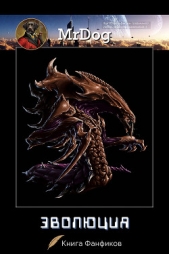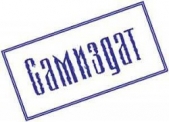Секреты китайской медитации.

Секреты китайской медитации. читать книгу онлайн
Книга рассказывает о секретах китайской медитации. Включает в себя разделы о самокультивации согласно Шурангама Сутре, школе Чань (Дзэн), школе Чистой Страны и т.д.
Внимание! Книга может содержать контент только для совершеннолетних. Для несовершеннолетних чтение данного контента СТРОГО ЗАПРЕЩЕНО! Если в книге присутствует наличие пропаганды ЛГБТ и другого, запрещенного контента - просьба написать на почту [email protected] для удаления материала
At 19, together with his cousin Fu Kuo, he fled to Kushan monastery at Fuchow where his head was shaved, and here he followed the Master Miao Lien and received full ordination. After being ordained, his cousin left in search of enlightened masters but was never heard of again. Hearing that his father had sent servants to look for him, Hsu Yun hid in a grotto behind the monastery where he practised austerities for the next three years. At 25 he learned that his father had died in Hunan province and that his stepmother with his two wives had entered a nunnery.
During these years in the grotto, he made very good progress and had most interesting experiences. He says in his autobiography: "I was able to make my heart content and became free to go anywhere I wanted. As there were mountains to stay on and herbs to eat, I started wandering from place to place." At 31, he went to Wenchow where he met a monk who urged him to call on the old master Yung Ching who was well-versed in both teaching and Ch'an transmission. This master urged him to resume eating rice and to use the Kung An (koan) "Who is dragging this corpse of mine?" and ordered him to study the Ch'an rules, the Lotus teaching and other important sutras. From 36 to 43 he went on a pilgrimage to P'u T'o island off Ningpo, which was the bodhimandala of Avalokitesvara Bodhisattva, thence to the monastery of King Asoka at Ningpo and to many other holy places where he called on well-known masters and made good progress in his Ch'an practice.
At 43, he took stock of his achievements which were not complete and remembering how he had sacrificed his love for his parents in order to join the Sangha, he was ashamed that he had attained so little. In order to repay his debt of gratitude to them, he decided on a long pilgrimage from P'u T'o to the Five-Peaked Mountain (the bodhimandala of Manjusri) in the North-west to pray for their rebirth in the Pure Land. From the thatched temple of Fa Hua on P'u T'o island, he set out with incense sticks in his hands, prostrating himself every three paces until he reached his destination.
In his long walk with prostration at every third step and concentration on repeating Manjusri's name, he succeeded in realizing singleness of thought which was the key to his subsequent success in Ch'an training. Twice he was in danger of death and twice he was saved by Manjusri who appeared as a beggar called Wen Chi to hide his identity, instead of Wen Shu as he was called in China. The first time he had been caught in a heavy snowstorm and was very hungry, tired and exhausted for several days after which he was given some yellow rice gruel which brought him back to life. Later he caught malaria and dysentery and was dying in a deserted temple on the top of a mountain when the beggar appeared again to give him the hot water and medicine that saved him. Chi asked several questions which Hsu Yun did not understand and could not answer because he was still unenlightened and did not understand the living meaning of Ch'an dialogue (Japanese, mondo). Although he was told by the beggar that the latter was known in every monastery on the Five-Peaked Mountain, when he arrived there and asked the monks about Wen Chi no one knew him. Later he mentioned the incident to an elderly abbot who brought his palms together and said: "That beggar was the transformation body of Manjusri Bodhisattva." Only then did the master realize that he had actually met the Bodhisattva who had saved him twice on the long journey.
After sitting in meditation, he paid reverence to the Bodhisattva on the Five-Peaked Mountain, thus fulfilling his vow taken three years before to pray for the liberation of his parents. During this long journey, which took three years, he succeeded in realizing singleness of mind (i.e., the pure and undisturbed mind) even in the midst of hardship, adversity, illness and danger. On the mountain he saw, as many other pilgrims including devotees from foreign countries have done, balls of light dancing from one peak to another.
The master then went west and south, passing through many holy places where he paid reverence and sat in meditation until he reached the holy site of Samantabhadra Bodhisattva on mount O Mei in West Szechwan. There he saw at night countless Buddha-lights, like a constellation of bright stars in the sky. He continued his westward journey and entered Tibet where he visited the Potala, the seat of the Dalai Lama, and that of the Panchen Lama at Tashi Lunpo monastery. He then left Tibet to visit the holy sites of India, after which he crossed to sea to Ceylon, and thence to Burma. He then returned to China where he first visited the Cock's Foot Mountain in Yunnan which was the bodhimandala of Mahakasyapa, and then passed through the provinces of Kweichow, Hunan, Hupeh, Kiangsi and Anhwei. In his autobiography the master wrote of these two years of travel: "The scenery changed every day but my pure mind was like a bright moon hanging solitarily in the sky. My health grew more robust and my steps were rapid."
In his 54th and 55th years, the master stayed on a mountain to read the tripitaka. At 56, he was invited to the famous monastery of Gao Ming at Yangehow to assist its abbot in supervising the twelve weeks of Ch'an meditation. On his way to Yangehow, he slipped and fell into a rising river and was caught in a fisherman's net. He was carried to a nearby temple where he was revived. He was very ill but went on to Kao Ming monastery where he was asked to help at the forthcoming meditation weeks. Without disclosing his illness, he politely declined the abbot's request, asking only to be allowed to attend the meditation meetings. His refusal was regarded as an affront to the whole community and, according to Kao Ming's rules of discipline, he was punished by being beaten with a wooden ruler. As the master was practising the relinquishment of attachment to ego, ksanti-paramita and virya-paramita, he willingly accepted this punishment which aggravated his illness. In order to cure it, he sat firmly in the meditation hall day and night with increasing zeal. He said in his autobiography: "In the purity of my singleness of mind, I forgot all about my body. Twenty days later my illness vanished completely. From that moment, with all my thoughts entirely wiped out, my practice took effect throughout the day and night. My steps were as swift as if I was flying in the air. One evening, after meditation, I opened my eyes and suddenly saw I was in brightness similar to broad daylight in which I could see everything within and without the monastery..." Knowing that he had only achieved an advanced but not the final stage, he refused to cling to it, resolving to wipe out the final hindrance caused by his last subtle attachment to ego and Dharma. One night when the meditation ended after six successive incense sticks had been burned, a monk came to fill his cup of tea. As the boiling water splashed over his hand, he dropped the cup, which fell to the ground and broke with a sound which was heard by his pure mind1 that was now able to perform its non-discriminating function of perceiving externals. Instantly he cut off his last link with samsara and rejoiced at his realization of the Absolute. He wrote in his autobiography: "I was like someone awaking from a dream" which meant that he had leaped over the worldly stream to the other shore of Bodhi. He then chanted the following two gathas:
1 – A cup fell to the ground
With a sound clearly heard.
As space was pulverised,
The mad mind came to a stop.
2 – When the hand released its hold, the cup fell and was shattered,
'Tis hard to talk when the family breaks up or someone dies.
Spring comes with fragrant flowers exuberating everywhere;
Mountains, rivers and the great earth are only the Tathagata.
_______________________________
1 – 'Pure mind' is a technical term for the innate primordial intellect.























